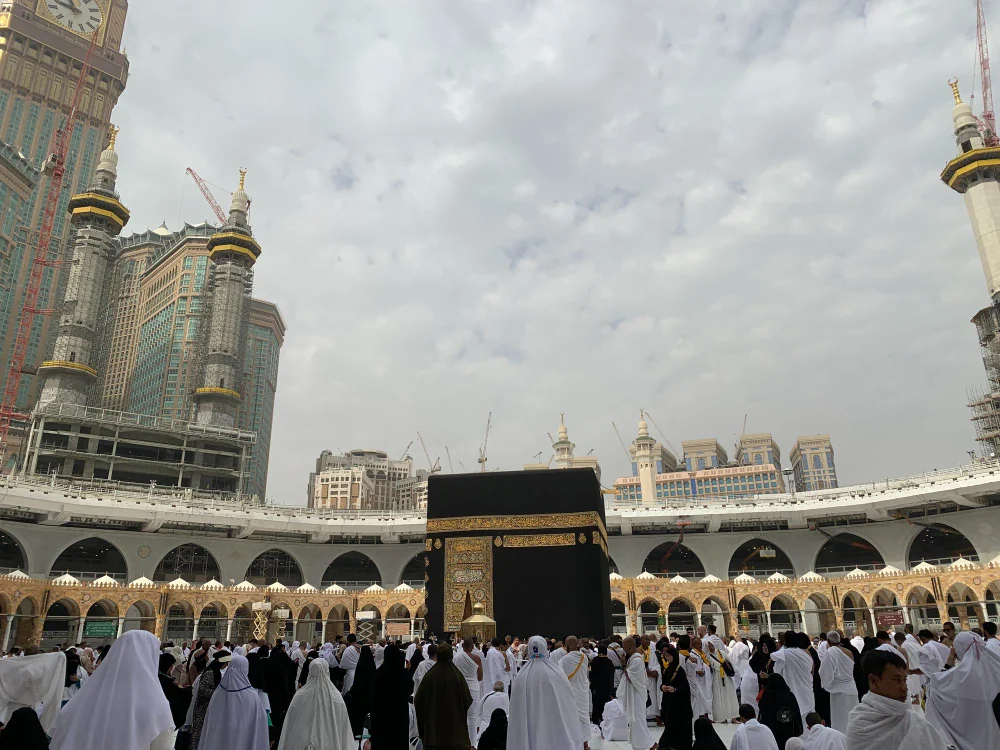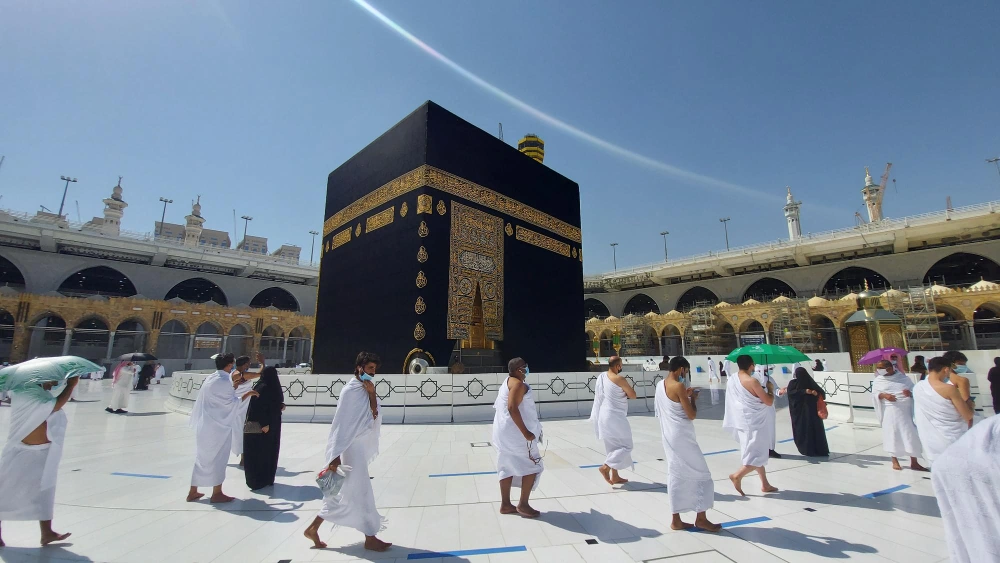Sacrifice is one of the highly recommended acts of worship in Islam, especially during the Eid al-Adha celebration. This act of worship not only has high spiritual value but also reflects concern for others. So, what is the law of sacrifice in Islam, and how is it performed?
1. The Law of Sacrifice
Before understanding the procedures of sacrifice, it is better to first understand the law of sacrifice and its basis.
1.1 According to the Quran and Hadith
According to the Quran and Hadith, there are commands to perform sacrifice. This is found in several verses of the Quran, namely:
Al-Kautsar, Verse 2:
"So pray to your Lord and sacrifice (to Him alone)." (Quran, Al-Kautsar: 2)
In this verse, there is a command from Allah Subhanahu wa Ta'ala to the Prophet Muhammad Shallallahu `Alaihi wa Sallam to sacrifice as a form of worship and approach Him.
Al-An'am, Verses 162-163:
"Say, 'Indeed, my prayer, my rites of sacrifice, my living and my dying are for Allah, Lord of the worlds. No partner has He. And this I have been commanded, and I am the first [among you] of the Muslims.'" (Quran, Al-An'am: 162-163)
This verse emphasizes that all acts of worship, including sacrifice, must be sincerely directed only to Allah Subhanahu wa Ta'ala.
In the hadith, the Prophet Muhammad Shallallahu `Alaihi wa Sallam emphasized that Allah Subhanahu wa Ta'ala loves those who perform the act of sacrifice. The sacrificed animal will serve as salvation on the Day of Judgment. This is mentioned in a hadith narrated by Tirmidhi:
"There is no action done by the children of Adam on the Day of Nahr that is more beloved to Allah than shedding blood (of the sacrificed animal). Indeed, it will come on the Day of Judgment with its horns, its hair, and its hooves. The blood will reach the acceptance of Allah before it falls to the ground. So purify your souls by performing sacrifice." (HR. Tirmidhi)
1.2 According to the Schools of Thought
The law of sacrifice according to the four major schools of thought is as follows:
1.2.1 According to the Hanafi School
The Hanafi school considers the act of sacrifice to be obligatory (wajib) for every capable Muslim. According to Imam Abu Hanifa, this capability is measured by the possession of wealth that exceeds daily basic needs.
1.2.2 According to the Maliki School
According to the Maliki school, the act of sacrifice is a highly recommended sunnah (sunnah mu’akkadah) for every capable Muslim individual, but it is not obligatory. Imam Malik emphasized the importance of sacrifice as an act of obedience to Allah and as a way to emulate the example of Prophet Ibrahim 'Alaihis Salam.
1.2.3 According to the Shafi'i School
In the Shafi'i school, the act of sacrifice is also considered a highly recommended sunnah (sunnah mu’akkadah). Imam Shafi'i believes that sacrifice is a sign of gratitude for Allah's blessings and a form of social concern by sharing the meat with those in need.
1.2.4 According to the Hanbali School
The Hanbali school shares the same view as the Maliki and Shafi'i schools, that the act of sacrifice is a highly recommended sunnah (sunnah mu’akkadah) for those who are able. Imam Ahmad bin Hanbal emphasized that sacrifice has a high worship value and can atone for sins.
As mentioned above, three out of the four schools of thought consider the act of sacrifice to be a highly recommended sunnah. This belief is prevalent among the majority of Indonesians, who view sacrifice as an important sunnah. However, each school has different foundations and ijtihad methodologies in understanding religious texts.
It is important to remember that Islam advocates tolerance and diversity of opinions. Every Muslim has the right to follow the school of thought they believe in, as long as the school has strong foundational texts and ijtihad methodology.
2. Requirements for Sacrifice
2.1 Requirements for Individuals to Perform Sacrifice
2.1.1 Muslim
The act of sacrifice is specifically for Muslims. Sacrifice is a form of devotion to Allah Subhanahu wa Ta'ala. As an act of worship, its purpose is to draw closer to Allah Subhanahu wa Ta'ala. Therefore, someone who does not worship Allah Subhanahu wa Ta’ala is not required to perform sacrifice.
2.1.2 Resident
The obligation to sacrifice does not apply to travelers (musafir). Travelers are given leniency in performing acts of worship, including sacrifice, due to their limited time, place, and conditions to perform worship perfectly.
A "resident" is defined as someone who stays in one place for a certain period, at least three days. This is based on the opinion of scholars from the Shafi'i and Hanbali schools. According to the Maliki and Hanafi schools, there is no minimum time limit for being considered a resident.
2.1.3 Wealthy or Financially Sufficient
An individual is encouraged to perform sacrifice if they have sufficient wealth to meet their and their family's basic needs for three days. This includes not only food but also other basic needs like clothing and shelter.
This requirement is based on a hadith of the Prophet Muhammad Shallallahu `Alaihi wa Sallam narrated by Imam Ahmad and Abu Dawud:
"There is no obligation for sacrifice for someone who does not have excess food for themselves and their family for three days." (HR. Ahmad and Abu Dawud)
The hadith explains that those who do not have excess food for themselves and their family for three days are not required to perform sacrifice.
2.1.4 Adult
Children who have not reached puberty are not required to perform sacrifices. This is because they do not yet have a sufficient understanding of the meaning and procedures of sacrifice.
However, parents can teach their children about sacrifice from an early age. This can be done by taking them to the place of sacrifice, explaining the meaning and wisdom behind it, and encouraging them to perform sacrifice with their own money.
2.1.5 Sane
People who are insane or mentally incapacitated are not required to perform sacrifice. This is because they do not have the ability to understand and perform the act of sacrifice properly.
If someone has a temporary mental disorder, such as depression or anxiety, the obligation depends on the severity of the disorder. If the disorder does not eliminate their sound mind, they are still required to perform sacrifice.
However, if the disorder does eliminate their sound mind, they are not required to perform sacrifice. In this case, their parents or guardians can perform sacrifice on their behalf.
2.2 Requirements for Animals to be Sacrificed
2.2.1 Livestock Animals
Animals that can be used for sacrifice include camels, cows, goats, and sheep. Camels and cows are generally chosen for group sacrifices, while goats and sheep are usually chosen for individual sacrifices. These animals are chosen because of their high economic value and their meat can be widely utilized by the community.
2.2.2 Preferably Male
It is recommended to sacrifice male animals. However, there is no prohibition against sacrificing female animals. Male animals are preferred because they generally have more meat and stronger physiques. This follows the example of Prophet Muhammad Shallallahu `Alaihi wa Sallam, who often sacrificed male animals in various hadiths.
2.2.3 Minimum Age of Animals
The minimum age for animals eligible for sacrifice is also established. For camels, the minimum age is five years. Cows must be at least two years old, while goats and sheep must be at least one year old. Determining the age is important because older animals typically have better quality meat and have reached the appropriate physical maturity for sacrifice.
2.2.4 Healthy
The health of the animal to be sacrificed must be in good condition. Animals that are sick, defective, or have physical abnormalities are not valid for sacrifice. Healthy animals will produce quality meat that is suitable for consumption. This aligns with a hadith narrated by Tirmidhi and Ibn Hibban:
From Al-Bara’ bin ‘Azib radhiyallahu ‘anhuma, he said, "The Prophet shallallahu ‘alaihi wa sallam once stood among us and said: ‘There are four defects that are not allowed in sacrificed animals: (1) Blindness in one eye and its blindness is evident, (2) Sickness and its sickness is evident, (3) Lameness and its lameness is evident, (4) Extreme thinness such that it has no marrow.’”
Therefore, it is crucial to inspect the animal's health before slaughter to ensure it is free from diseases and fit for sacrifice.
2.2.5 Not in Estrus or Nursing
Animals to be sacrificed should not be in estrus or nursing. Animals in estrus may exhibit unstable behavior, while nursing animals require significant energy for their offspring. Sacrificing animals in these conditions is considered unethical as it can affect the welfare of the animals and their offspring. Additionally, pregnant animals should not be used for sacrifice.
3. Procedures for Sacrifice
3.1 Choosing the Sacrificial Animal
Choosing the sacrificial animal is a crucial initial step in the process of sacrifice. The chosen animal must meet specific requirements for the sacrifice to be valid and accepted by Allah Subhanahu wa Ta'ala. Some of these requirements include the health and age of the animal. The animal should be healthy, free from defects, and have reached the specified minimum age. This ensures that the sacrifice is conducted according to Islamic teachings and produces high-quality meat.
3.2 Intention (Niat)
Intention (niat) is one of the key aspects in every act of worship in Islam, including sacrifice. Intention must be sincere, only to seek the pleasure of Allah Subhanahu wa Ta'ala. Intention can be made when purchasing the sacrificial animal or just before the act of sacrifice. Intention does not need to be verbally expressed but must be present in the heart. By making the intention sincerely, the act of sacrifice becomes more meaningful and is accepted by Allah Subhanahu wa Ta'ala.
3.3 Slaughtering
The main steps for slaughtering a sacrificial animal include:
- Using a sharp knife: The knife used for slaughtering must be sharp to ensure a quick and clean cut, minimizing the animal's suffering.
- Facing the animal towards the Qibla: The animal should be positioned to face the Qibla (direction of the Kaaba in Mecca) during slaughter. This symbolizes obedience and submission to Allah Subhanahu wa Ta'ala.
- Avoiding sharpening the knife in front of the animal: Sharpening the knife in front of the animal can cause fear and anxiety. It is recommended to prepare the knife beforehand.
- Laying the animal on its left side: The animal should be laid on its left side with the head positioned towards the Qibla. This position facilitates easier and more humane slaughtering.
- Stepping on the animal's neck: The person performing the slaughter should step on the animal's neck gently to prevent excessive movement and ensure a precise cut.
- Reciting Bismillah and Takbir: Before making the cut, it is important to recite "Bismillah" (In the name of Allah) and "Allahu Akbar" (Allah is the Greatest) as an invocation for blessings and acceptance from Allah Subhanahu wa Ta'ala.
- Mentioning the name of the person for whom the sacrifice is intended: If the sacrifice is intended for someone else, the name of that person should be mentioned to ensure the sacrifice is dedicated to them.
- Cutting the throat, esophagus, and blood vessels: The throat, esophagus, and blood vessels must be cut quickly and thoroughly to minimize the animal's suffering and ensure the blood drains completely.
4. Wisdom and Virtues of Sacrifice

Sacrifice holds great wisdom and virtues, both spiritually and socially. Some of them include:
4.1 Drawing Closer to Allah
Sacrifice is a means of drawing closer to Allah Subhanahu wa Ta'ala by obeying His commands. By performing sacrifice, Muslims show their devotion and submission to Allah.
4.2 Concern for the Needy
Sacrifice promotes social solidarity by sharing the sacrificial meat with the less fortunate, ensuring they can also enjoy the Eid celebration.
4.3 Attaining Piety
Sacrifice is a manifestation of piety, as it involves financial expenditure and heartfelt sincerity. It purifies the soul and strengthens faith.
4.4 Testimony of Good Deeds in the Hereafter
The sacrificial animal will testify to the good deeds of the one who sacrificed it on the Day of Judgment, bringing blessings and rewards.
5. Prohibitions for Those Who Sacrifice
There are certain prohibitions associated with the act of sacrifice that must be adhered to:
5.1 Before Sacrifice
- Do not cut nails or hair: For those intending to sacrifice, it is recommended to refrain from cutting nails or hair from the start of Dhul Hijjah until the sacrifice is made.
- Do not sell the intended sacrificial animal: Once an animal has been designated for sacrifice, it should not be sold or exchanged.
- Do not rent the animal: The sacrificial animal should not be rented out for work or any other purpose.
5.2 During Sacrifice
- Do not omit mentioning Allah's name: It is essential to mention Allah's name during the slaughtering process.
- Do not follow non-Islamic slaughtering methods: The sacrifice must be conducted according to Islamic guidelines to ensure its validity.
- Do not sacrifice unqualified animals: Ensure the animal meets the health and age requirements.
5.3 After Sacrifice
- Do not sell the meat: The meat from the sacrificial animal should not be sold for profit.
- Do not use the meat as payment for slaughterers: The meat should not be given as payment for those who assist in the slaughtering process.
- Do not waste the meat: Ensure the meat is distributed and consumed appropriately without wastage.
By following these guidelines, we can perform the sacrifice correctly according to Islamic law and receive abundant blessings and rewards. May this article benefit and enhance our understanding of the importance of sacrifice in Islam.
If you need financing for your needs, you can apply for Sharia-compliant financing at BFI Finance, which can be used for various purposes with car collateral. Apply for your Sharia financing now






